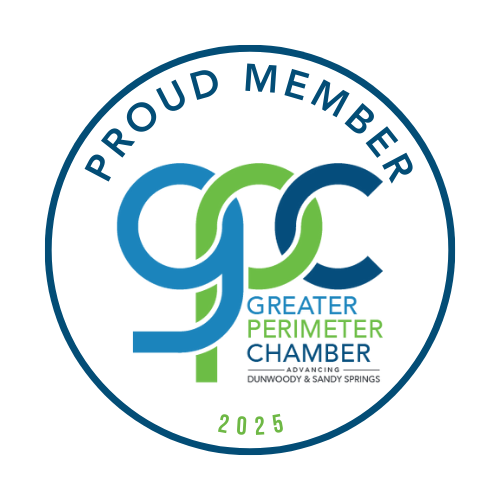Dual Diagnosis Treatment for PTSD is a specialized approach for individuals facing both post-traumatic stress disorder and a co-occurring substance use disorder. Untreated PTSD can intensify addiction, and substance misuse can worsen trauma symptoms. At Atlanta Recovery Place, we provide integrated programs that address both conditions simultaneously. Early, effective intervention significantly improves long-term healing and stability.
What Is Dual Diagnosis Treatment?
Dual Diagnosis Treatment for PTSD involves addressing mental health disorders and addiction at the same time. Unlike separate treatment paths, this integrated approach ensures that one condition does not undermine the other. Patients benefit from coordinated care that targets both PTSD and substance use, providing a solid foundation for recovery. Early identification and treatment reduce the risk of relapse and improve emotional resilience.
The Connection Between PTSD and Substance Use
Trauma often triggers substance misuse as individuals attempt to self-soothe or avoid distressing memories. Without treatment for PTSD, cravings and triggers may increase relapse risk. Common signs of co-occurring PTSD and addiction include intense flashbacks, avoidance behaviors, insomnia, increased irritability, and alcohol or drug dependence. Recognizing these signs early allows for prompt intervention and improved outcomes.
How Atlanta Recovery Place Approaches Dual Diagnosis Treatment
Comprehensive Assessment and Diagnostic Evaluation
Each client receives an in-depth evaluation to identify PTSD symptoms, substance use patterns, and underlying mental health concerns. This assessment guides the creation of a personalized treatment plan.
Personalized Treatment Planning for PTSD and Addiction
We design individualized programs that address both trauma and substance use, incorporating therapy, medication management, and support services tailored to each patient’s needs.
Evidence-Based Therapies for Trauma and Substance Use
Clients participate in proven therapies, including cognitive behavioral therapy, dialectical behavior therapy, trauma-focused group sessions, and other evidence-based interventions. These therapies help process trauma safely while building coping skills for sobriety.
Medication Management and Support
When appropriate, medication can help manage PTSD symptoms or withdrawal effects. Our clinical team monitors progress closely to optimize treatment and ensure safety.
Continuous Monitoring and Adjustments for Long-Term Success
Treatment is flexible, adapting to patient progress. Regular evaluations allow adjustments in therapy, support services, and coping strategies to maximize recovery outcomes.
Therapies Included in Dual Diagnosis Programs
- Cognitive Behavioral Therapy for PTSD and addiction
- Dialectical Behavior Therapy for emotional regulation
- Trauma-focused group therapy
- Family therapy to rebuild support systems
- Holistic approaches: mindfulness, yoga, art therapy
- Relapse prevention and life skills training
The Role of Trauma Therapy in Recovery
PTSD therapy and addiction treatment work together to address trauma safely and effectively. Processing traumatic events under professional guidance reduces the likelihood of self-medication. Clients learn coping strategies, emotional regulation, and resilience skills that prevent relapse. Therapy also helps rebuild trust, improve relationships, and stabilize mood.
Why Integrated Treatment Improves Long-Term Outcomes
Simultaneously treating PTSD and addiction ensures there are no gaps in care. Integrated programs reduce the risk of repeated hospitalizations, relapse, and chronic mental health issues. Emotional, behavioral, and social recovery is strengthened, creating a foundation for lasting stability. At Atlanta Recovery Place, our dual diagnosis PTSD program supports clients through every stage of recovery, addressing the root causes of their struggles.
Preparing for Life After Treatment
Step-down programs and outpatient support ensure that progress continues beyond residential care. Ongoing therapy, peer support groups, and life skills coaching help maintain sobriety and mental health. Clients are equipped with tools to navigate triggers, manage stress, and maintain long-term wellness. Preparing for life after treatment is an essential component of lasting recovery.
Contact Atlanta Recovery Place to learn how our Dual Diagnosis Treatment for PTSD can help you or a loved one achieve lasting recovery. Our team provides personalized care, evidence-based therapies, and continuous support to guide clients through trauma and addiction toward long-term wellness.
FAQs
How do I know if I need dual diagnosis treatment?
Individuals struggling with both trauma symptoms and substance use may benefit. A professional assessment can determine the appropriate approach.
Can PTSD be treated alongside substance use effectively?
Yes. Integrated dual diagnosis programs have proven results for managing both conditions simultaneously.
What therapies are used for trauma and addiction together?
Cognitive behavioral therapy, dialectical behavior therapy, trauma-focused group therapy, and holistic therapies are commonly used.
How long does dual diagnosis treatment typically last?
Program length varies based on individual needs, progress, and severity of symptoms.
Is family involvement important in dual diagnosis recovery?
Family therapy and support enhance recovery, improve communication, and strengthen the client’s support system.









